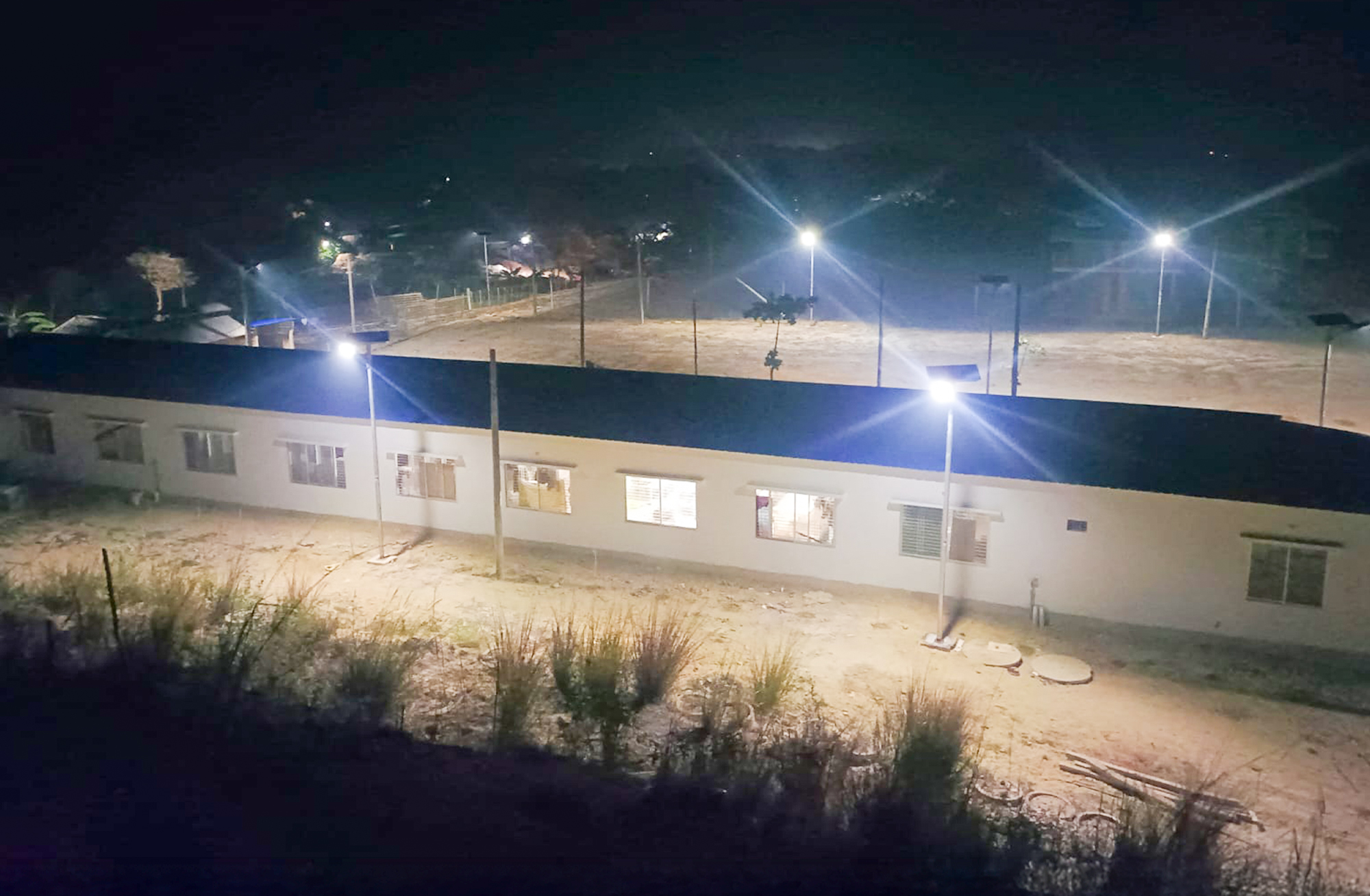Empowering Communities with Light and Clean Water in Rohingya Refugee Camps
Solar Panels Bring Safety and Hope to Armed Police Battalion (APBn) in Cox’s Bazar
December 22, 2024

Solar-powered streetlights illuminate the APBn barracks in Cox’s Bazar, ensuring safety and enhancing operational efficiency for officers at night.
For months, the female officers of the Armed Police Battalion (APBn) in Ukhiya, Cox’s Bazar, lived in fear as night fell. Their barracks, nestled inside the Rohingya refugee camps, were shrouded in darkness, making it nearly impossible to patrol the area safely or carry out their duties effectively.
“It was terrifying,” recalls Sharmin*, a female officer stationed at one of the APBn bases. “We had to work through the nights, but with no lights, every shadow felt like a threat.” (*Pseudo name)
The absence of reliable lighting posed more than just a challenge for the APBn members—it was a matter of life and death. The lack of visibility increased security risks for the officers and deterred Rohingya refugees from visiting the camps to report incidents after dark.
Recognizing the urgency, the United Nations Development Programme (UNDP) stepped in. In response to a request from the APBn during a visit in July 2024, UNDP provided 80 solar-powered streetlights to illuminate 20 critical locations, including 15 APBn bases.
When the first solar panels lit up the night, it was more than just a technical achievement—it was a moment of transformation. “For the first time in years, I felt safe walking in the camp at night,” shares Fatema*, a Rohingya woman living nearby. (*Pseudo name)
Today, the APBn members, including 1656 officers, 15 of them female, can carry out their duties with confidence. The once-dark barracks now shine bright, and female officers no longer have to face the added burden of darkness while serving their community.
Beyond lighting, UNDP also addressed another critical need: access to clean drinking water. Five water treatment plants were installed in the camps, ensuring 305 APBn members, including 11 female officers, have access to purified, iron-free water.
Muhammed Siraj Amin, Additional DIG and Commanding Officer of 14 APBn, reflects on the impact “These solar panels have made it possible for us to operate safely at night. And the water treatment plants have improved our health and well-being. We are deeply grateful for UNDP’s support and hope for continued collaboration in the future.”
These initiatives, supported by the Bureau of Population, Refugees, and Migration (BPRM) under the Department of State, are more than infrastructure improvements. They represent a commitment to empowering communities and advancing the Sustainable Development Goals (SDGs), particularly SDG 6 on clean water and sanitation and SDG 7 on affordable and sustainable energy.
For the officers of APBn and the Rohingya refugees, these changes signify a brighter, safer future, one where hope shines as brightly as the solar lights now scattered across their camp.

 Locations
Locations

